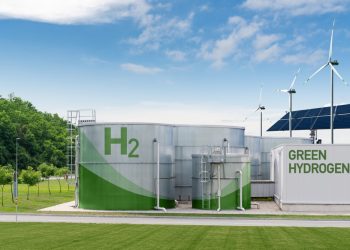
Minister of Mines and Energy, Tom Alweendo, says collaboration and public-private partnerships (PPP) are crucial factors for unlocking Africa’s green hydrogen potential.
Speaking at the Africa Hydrogen Forum, Alweendo acknowledged individual African nations’ progress in developing their green hydrogen strategies.
“Public-driven PPPs and the strategic constitution of consortiums with the aim of unlocking concessionary multilateral funding will likely emerge as a preferred approach to developing the required assets,” Alweendo said.
He further emphasized the need for a united effort to create the infrastructure needed to produce, transport, and export green hydrogen across the continent.
“Such a modern and curated infrastructure network will require a regional approach to plan and deliver, in order to unlock economies of scale that establish and entrench Africa’s global competitiveness,” he said.
Alweendo also said that this infrastructure would include railways, power lines, and strategic port facilities and pointed to existing initiatives like the Trans-Caprivi and Trans-Kalahari railway lines as examples of successful cross-border collaboration.
“It is critical that we work in concert with our regional neighbors, to deliver a new global gateway that creates modern trade and low carbon industrial opportunities, placing the region at the center of a rapidly greening world,” he said.
He added that the successful execution of the Green Industrialisation Blueprint could attract more than nine times the current level of foreign direct investment into Namibia by 2040, creating over a quarter of a million new jobs, and reducing carbon dioxide emissions by more than 75 million tons.
“Agenda 2063 promises to bring unity, economic independence, and collective prosperity to the fore as we chart a path to transform Africa into a global powerhouse. It will also bring intercontinental value chain linkages that support industrialisation in Namibia and beyond,” he said.







